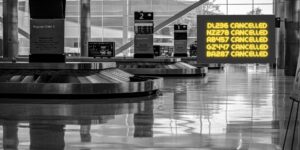
If you cannot find the answer to your question, please get in touch. We are always happy to help.

 Two failures, two very different reactions.
Two failures, two very different reactions.
I had a great life lesson recently on how to react to failure. The catalyst was a candidate asking for a refund because he had failed to gain a cadetship. My first reaction was shock as I work really hard for my candidates and this never happened before. Shock quickly turned to self-doubt, even after 15 years in this industry and thousands of Pilot success stories around the world. I quickly realised that self-doubt is the emotional reaction that most people experience with any kind of failure.
So if self-doubt is a normal emotional reaction, it comes down to what you do next.
In business you have a management technique to follow, so after I calmed down I spoke to my most trusted colleague, who I knew would react with fact and action. The advice was to put our management plan into action and make this a learning experience for Pinstripe as well as the client. She was right, I could use this as an opportunity to learn and provide an even better service.
I contacted the candidate, gave the refund but I went further. I decided to do everything I could to offer support to this candidate and help him manage this career hiccup. I offered a complimentary debrief, extra coaching session and help with his career plan.
His response was still upset, anger and lashing out, blaming everyone encountered in the interview process and he chose not to take up my offer for additional support.
This was the reaction of another Cadet who failed to gain his cadetship 12 months earlier:
This candidate did a tonne of work to prepare for a highly contested cadet programme. He had great potential, passion and commitment to this career path. However, at the time he was only 18 and with no on-the-job experience, the airline knew he needed to gain some life experience before they were willing to offer him a pilot cadetship. Cadetship programmes are expensive to the airline and they will not take any candidates that pose a ‘risk’ of failing. Lack of life experience was in this case identified as a risk.
So they didn’t offer him a place in the programme. They told him to find work, gain some life experience and come back next year.
Was he upset? Of course he was, devastated to be frank. My advice was that this airline actually meant it and it wasn’t just a “loose comment”. The airline recognised his potential and so did I. It’s hard to hear, but when you get that kind of advice, you need to take that on board.
Keeping you informed on opportunities, new airline intel, tips and tools for your next airline interview
We planned out the next 12 months. He picked himself up and said: “I’m going to get a job, get my hands dirty and save up to get this flying career one way or another!” He got a job in construction.
12 months later on the dot, he came back. And he wasn’t just giving it “another go”, but he insisted to start his interview preparation all over again with the wealth of knowledge he had gained about himself. When I asked him what he had learnt on that building site, he said:
• I learned to take orders
• I learnt that no job was too small, or too unimportant for me to do
• I learnt that I can talk to tradespeople or talk to multi millionaire site owners with equal respect
• I learnt to work in a team
• I learnt that I could pick up new concepts and ideas quickly
• I learnt what truly hard work was
So, round two cadet programme interviews, he was offered a place!
This guy is why I love my job so much. He just passed is CPL and is heading to Line Training and I was lucky enough he shared his entire journey with me.
What the airline and I saw in him was tenacity, motivation, confidence and resilience.
How you respond to failures or hiccups in your career and life, is pivotal. Nothing in life is guaranteed, but how you choose to react helps you create your own opportunities.
Share on: